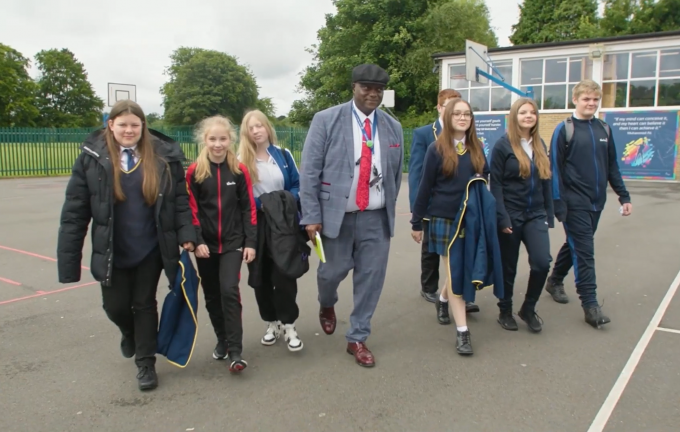When it comes to poor behaviour, it is far more effective in the long run to focus on the unmet needs behind the behaviour. Thrive's Rose Webb offers a list of prevention strategies and quick wins.
Difficult and challenging classroom behaviour is an unpleasant experience for any teacher. A zero-tolerance approach to transgressions sounds sensible, but it can be counterproductive.
Challenging behaviour is, for any child and young person, the smoke that pours from the fire. It is a way of communicating an unmet need, so working on identifying and addressing the emotions that can be manifested in such behaviour, rather than focusing on the behaviour itself, will ultimately deliver a greater impact.
We all know that young people’s mental health and wellbeing has taken a battering during the last year and a half, with successive lockdowns depriving them of the rich social and educational experiences they need.
Adolescence is complicated. Adults may feel tentative about addressing the emotional issues that affect adolescents because they do not want to be wrong. Instead, they are more likely to shut the behaviour down as quickly as possible.
It might, for some, feel like a no-go area but we need to be there for our students in an emotionally present way.
As a society, we are still very early on in our journey to talking more openly about wellbeing and mental health. Some adults may struggle speaking about feelings even though as an innate part of human experience we all have them, and to be healthy we need opportunities to express them.
Thankfully, younger generations are far more comfortable about talking about mental health. That bodes well for the future and the present – and we adults can learn something from it.

There are some encouraging signs of change. Government is at last talking and acting in the right way about this area. Funding is now available for senior mental health lead training (see SecEd, 2021) with a government commitment to offer the training to all eligible schools and colleges by 2025.
This is good, but it is just a start. Children’s mental health charity Young Minds has urged the government to invest in a centrally and consistently funded national network of early support hubs that will offer somewhere for every young person to go for their mental health without having an appointment or being on a waiting list.
"When we focus on the unmet need that is causing the behaviour issue, that is when young people make a shift..."
Such centres would be a huge help but are a longer term aspiration in the current economic climate. In the meantime, teachers can make a big difference by creating a supportive environment in which to talk about mental health and wellbeing with students, rather than waiting until we are at the point where we have to react to problems.
When we focus on the unmet need that is causing the behaviour issue, that is when young people make a shift from feeling that everyone is against them, to a realisation that they should move on from emotional outbursts or confrontation because they are valued and have adults alongside them that they know are supporting them.
I have put together a short list of prevention strategies and quick wins that I think will help:
- Use structures and routines in the school day to promote connection and positive relationships.
- Set the emotional tone you would like adolescents to present with. A calm and friendly welcome into the classroom helps. It’s a small, seemingly insignificant act, but it is a way of showing young people what healthy relationships feel like through the way you relate to them.
- Provide young people with an emotional education so that they understand themselves and others better. Teach young people a range of strategies that support their mental health and emotional wellbeing.
- Adopt a whole-school approach to mental health and wellbeing, with consistently applied practice that is evidence-based and widely understood. Ensure policies and procedures take into consideration mental health or emotional wellbeing needs.
- Consider staff wellbeing and how this may affect levels of stress and interactions with students.
- Use pastoral time to support young people, with a trusted adult and safe space when needed. Support tutors to understand how best to develop secure relationships with young people.
- Provide training on the neuroscience of adolescence and how this affects engagement, participation and behaviour.
- Ensure methods for early identification of needs are in place in order to prevent things from escalating quickly – we must move from being reactive to being responsive and proactive.
- Communicate with parents on how they can support their young people at home.
- Make good mental health and emotional wellbeing part of the culture and ethos of the school community. The more it is talked about, the less stigma or shame there is around these subject areas and the more awareness we have about them.
- Remember that no two young people will respond in the same way to traumas, challenges or difficulties in life. Meet them where they are, rather than drawing upon preconceived ideas or assumptions about what they are experiencing
Rose Webb is an adolescent specialist at Thrive and a former teacher who worked with young people with social, emotional and mental health needs throughout her career.
This article was originally posted on Sec Ed on February 14 and is available to view online here.
Over to you
Reduced anxiety and behavioural incidents. Calmer classrooms filled with engaged leaners. Improved relationships with parents and carers. These are just some of the outcomes reported by settings embedding Thrive’s whole-school approach to mental health and wellbeing. Are you ready to join them? Click here to get started.
Pass it on
Small actions can lead to a big ripple effect. If you enjoyed this post or found it helpful, please consider supporting us in our mission to help every child and young person feel safe, supported and ready to learn by sharing it using the social media buttons below.
Want to join a like-minded community of senior leaders and classroom staff benefitting from insights and strategies to improve attendance, behaviour and attainment? Add your email address below. (It’s easy to unsubscribe).




_680.jpg)

_680.jpg)